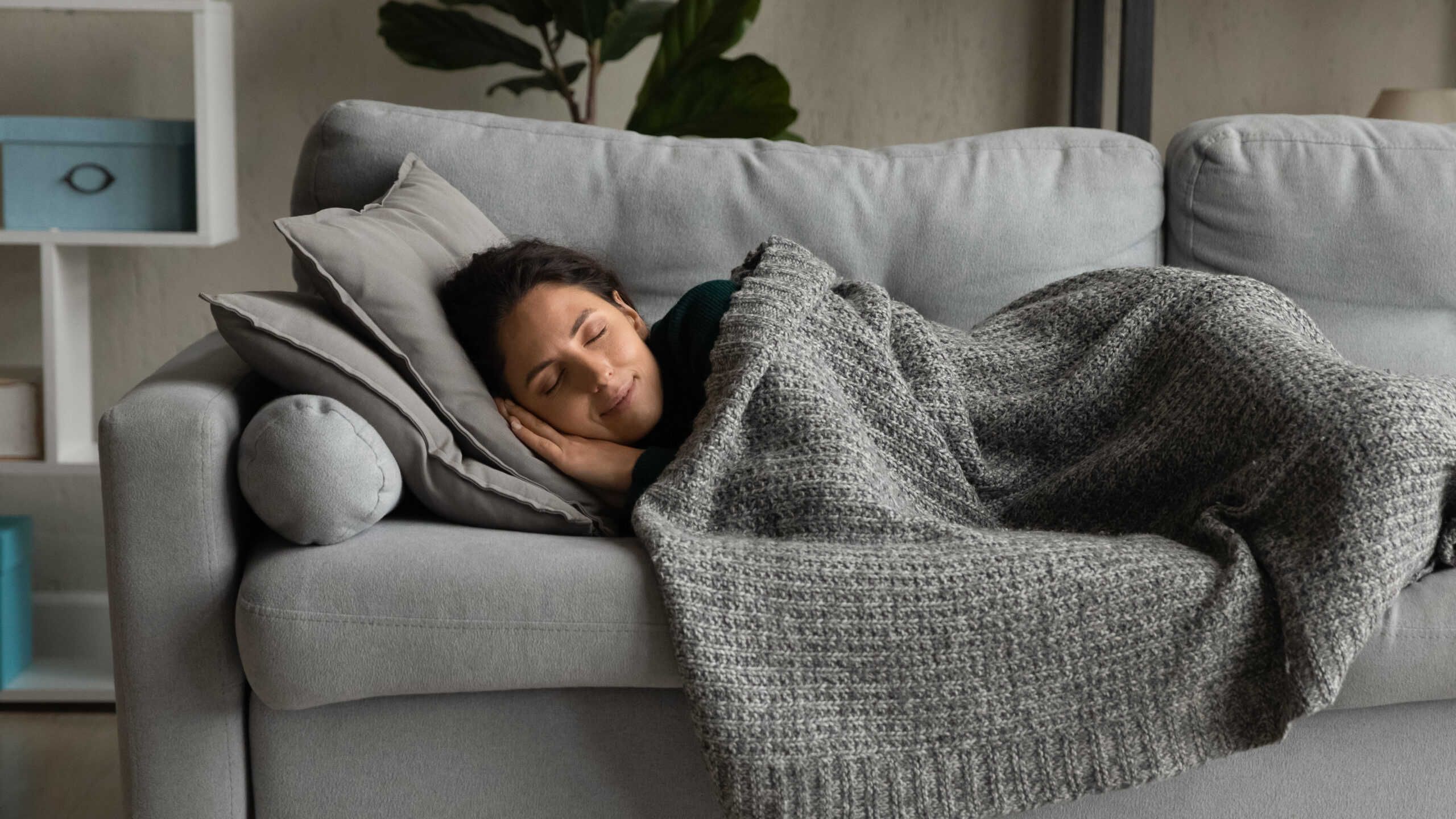Primary Care
Want to learn more about this at Kettering Health?
At a Glance
Q: How long should you nap to feel refreshed?
A: A 10–30-minute nap improves energy and memory without causing grogginess; longer naps may disrupt nighttime sleep.
- Naps longer than 60 minutes can cause grogginess.
- Avoid napping after 4 p.m. for better sleep.
- Learn tips for creating an ideal nap environment.
Nothing beats a good night’s sleep. But seven to eight hours of shut-eye a night isn’t always possible. If you’re sleeping less than six hours a night, napping midday can do a lot to make sure you aren’t going too far into sleep debt.
“Efficiency and productivity increase significantly when you’re well-rested,” says Dr. Sarah Hussain, medical director of the Sleep Center at Kettering Health Miamisburg. “If you’re not getting enough sleep at night, the body will crave sleep, and you will need a nap.”
Which nap is right for you?
The power nap. If you can do so, Dr. Hussain recommends taking a 10- to 20-minute nap in the middle of the day for a burst of energy. This will also help increase your alertness and productivity.
The 30-minute nap. According to Dr. Hussain, napping for 30 minutes a day has been linked to an increase in stamina and creativity and has been shown to improve motor skills, mood, and memory. Studies even show that this type of nap is beneficial for weight loss.
The long nap. Naps that last anywhere from 60 to 90 minutes can also be helpful.
When setting your alarm, though, be aware that naps lasting 60 minutes or longer can lead to grogginess. They can also make it more difficult to get to bed on time.
Become a pro at napping
When taking an effective nap, duration isn’t the only factor to consider. Before lying down for a nap, check the clock.
“Basically, we have a dip in our circadian rhythm between 1 and 3 p.m., so it’s the best time to get a nap in,” Dr. Hussain says. “I tell my patients not to nap after 4 p.m., as this will make them have trouble falling asleep at bedtime.”
Make sure you’re in a dark, cool, and quiet environment for optimal rest. Dr. Hussain suggests earplugs and an eye mask for undisturbed sleep.
Though you may not mark your calendar for them, it’s not a bad idea to get naps in regularly. “Some studies have shown that people who nap three times per week have a 30% decrease in risk of dying from heart disease,” says Dr. Hussain.
To nap or not?
Not a napper? If falling asleep during the day is hard for you, but you’re still not getting the sleep you need at night, Dr. Hussain suggests taking some time to close your eyes and relax your mind. This can help your brain rest and make you feel recharged
Coffee ≠ nap It’s easy to fall into the trap of thinking that you can just power through what you’re doing with an extra cup of coffee, but this is actually detrimental to your health. “If you’re not getting enough sleep, your body needs to rest, rejuvenate, and heal,” Dr. Hussain says.
Sleep deprivation can lead to conditions such as obesity, cardiovascular disease, anxiety, and depression—so make sure you get enough sleep to avoid these problems.










